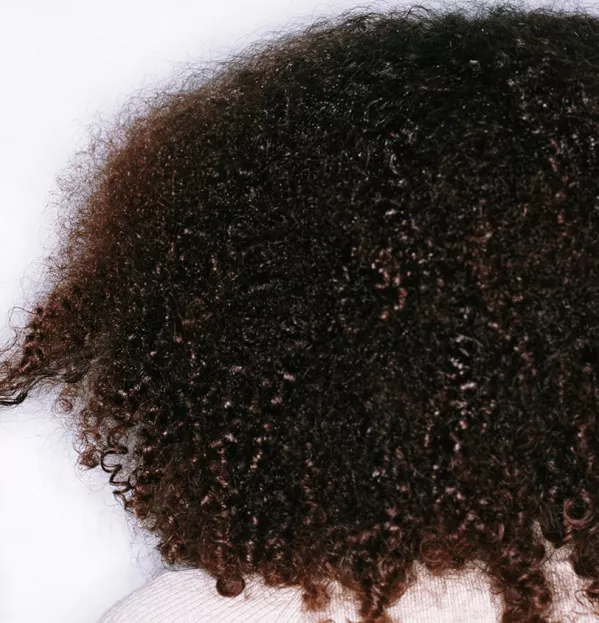How much does hair matter? To many people, not a lot. If you are a “wash and go” type of teacher, you probably pay little attention to what’s happening on your head. But my hair has always been a part of my teacher identity - equally as important (or even more so) as the suit I choose to wear into school each morning.
Yet my hair hasn’t always looked the same. When I first started at my school, just over five years ago, I had a long weave, which
the girls in my classes loved. It was ombre (a colour technique of graduation from darker to lighter tones) and I felt great with it in.
Over time, I went back and forth between weave, wigs and my own relaxed (chemically permed) hair. But straight hair was always my go-to and had been since I was a young girl.
Back then, flicking between the magazine pages, I saw images of black women and girls with bone-straight hair - every model’s ’do was either relaxed or pressed (straightened), or they had long weaves trailing down their back.
I was often told by people “your hair is your beauty”, and I knew what standards of beauty looked like: something like those models in
the magazines. So, I did everything I could to make sure my hair always looked “acceptable”.
Over the past few years, however, the “natural” hair movement has been growing. Whether on TV or in magazines, it is becoming more and more usual to see black men and women with natural hair.
And yet natural hair has often been deemed “unprofessional” or “unruly” - not suitable for the workplace. If you typed “unprofessional hairstyles” into Google just a few years ago, you got scores of images of black women with natural hairstyles.
There have also been instances of young people being sanctioned by schools because their natural hair and associated hairstyles have been deemed to be at odds with uniform policies. Despite this, just under three years ago, I made the decision to stop chemically straightening my hair and transitioned back into natural hair. Now I couldn’t be prouder of my hair - it is healthy and strong, in all
its Afro glory.
Afro hair has its own rules - it defies gravity; it comes in a variety of kinks and coils; it can be twisted, braided, curled, loc’d (dreadlocks); and however we choose to wear it, it is an expression of identity. This goes for anyone, not just black women, but all kinds of people. Whether we shave it off, cover it in a hijab or grow it down to our backs, our hair is a statement we make about who we are.
My students often tell me: “Miss, you change your hair all the time - are you rich?” First, I wish. Second, yes, I do, because my hair is a reflection of me - and I am changing all the time.
The first time I wore my natural hair to school, girls across year groups commented on how it was both “pretty” and like theirs. They saw a reflection of themselves in me and I couldn’t be happier about it - my hair is both for me and for them.
Genevieve Bent is a science teacher working in a secondary school in London
This article originally appeared in the 8 January 2021 issue under the headline “Taking pride in my natural hair is about more than looking good”
